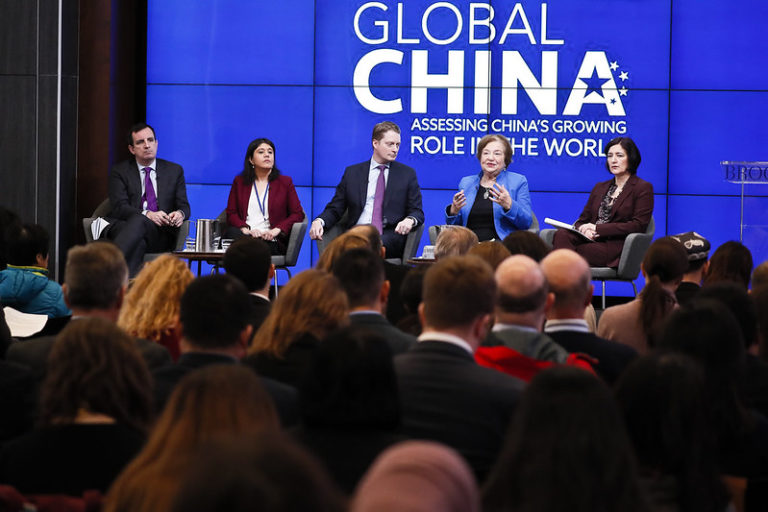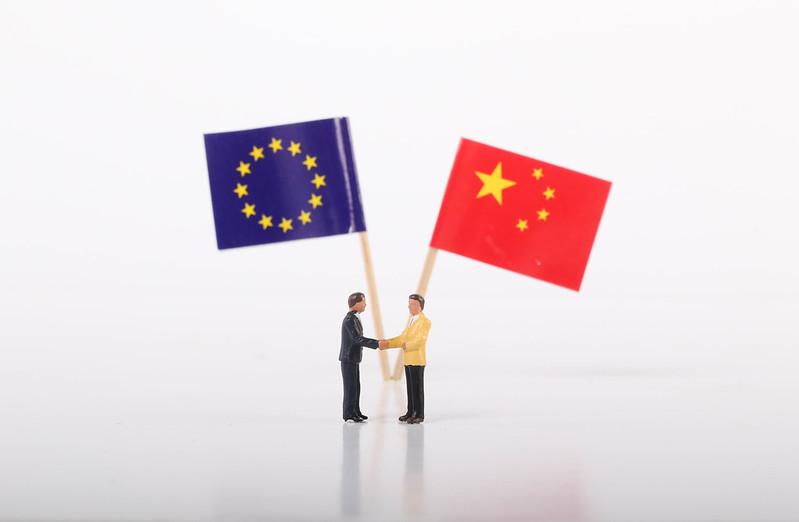The year 2020 was dominated by the COVID-19 pandemic and its impacts, along with various moments of friction between major economic powers on a host of policy issues. However, despite these challenges, we saw governments show their ability to come together on shared priorities. A notable example was the announcement from the European Union (EU) and China on December 30, 2020, that they had reached a deal “in principle” for a Comprehensive Agreement on Investment (CAI).
The announcement from the world’s two largest economies did not come as a total surprise. Negotiations for this CAI had been ongoing for 7 years, and the leaders of both sides have long indicated their desire to conclude the negotiations before the end of 2020.
However, given the timing amidst a pandemic and strong statements on both sides in favour of ambitious climate action and building back better, one would expect a strong sustainable development lens at the centre of the undertaking, rethinking, and redesigning of traditional approaches to economic liberalization.
The CAI draft text was released by the European Commission on Friday, January 22, following multiple requests from policy-makers, policy influencers, and the wider public, many of whom have asked whether the deal actually yields the benefits that both sides promise. The release of the text allows for a preliminary analysis of where this sustainable development lens has been applied—and where more might be done.
CAI market access: how much is gained?
The European Commission boasts that the CAI will give EU investors an “unprecedented level of access” to China, citing broad liberalization commitments following a “negative list” approach. In investment treaty negotiations, a negative list means that all sectors are included, except those that are specifically named otherwise.
The EU also highlighted market access commitments in the manufacturing and services sectors. However, the detailed schedules and annexes have not been publicly released, making it difficult to say how much these commitments go beyond what China has already pledged to provide through its recent domestic reforms in regulating foreign investment.
Prior to 2020, foreign investments in China were regulated by a set of fragmented and long-outdated laws, which critics said were no longer serving the needs of China’s economy in an era where its economic structure and foreign direct investment landscape were changing significantly.
At the same time, the international community had also expressed mounting concerns over the need for a more open business environment in China. As a result, China adopted its unified Foreign Investment Law (FIL) in 2019, which came into effect in January 2020.

The new FIL takes a pre-establishment negative listing approach similar to the draft CAI provisions. This means that, unless the foreign investors and their investments fall within the sectors listed in the negative list, the FIL commits to national treatment and equal protections in their establishment and operation in China (Article 4).
The same law also establishes a flexible framework where experimental policies can be carried out, and the scope of opening up can be further expanded (Article 13). In this context, the draft CAI seems to provide limited advances relative to the levels of access that EU investors already have in the Chinese market.
Related Articles: China Could Be Pivotal in Swapping Debt for Climate and Health Action ¦ EU Budget Needed for Europe’s Recovery Is in Trouble
Moreover, China already has bilateral investment agreements in force with all but one EU member state, specifically Ireland. All of these bilateral deals have investment protection and investment dispute settlement provisions, with two sections left for further negotiation under the CAI. The delay in concluding these sections is presumably because Brussels and Beijing are awaiting the outcome of the investor–state dispute settlement reform talks taking place at the United Nations Commission on International Trade Law (UNCITRAL).
This may also explain why the draft CAI expressly reaffirms the coexistence of the existing bilateral investment treaties between China and EU member states (Section VI, Article 15). This marks a notable difference from the approach the EU took when it entered similar agreements with countries such as Canada or Vietnam, which supplanted older bilateral treaties that Canada and Vietnam had with individual EU member states.
On the other hand, in addition to the EU’s commitments that would advance the facilitation and liberalization of Chinese investment in the EU, China also praised the provisions of the draft CAI for providing “Chinese business with more transparent and predictable business and legal environment[s].”
This may refer to the Regulatory Framework section (Section III), where parties agreed to make all investment-related laws and regulations publicly available in a timely manner. Parties also agreed to allow stakeholders opportunities to comment on these laws and regulations, establish contact points to respond to investors’ enquiries, and streamline standard-setting and administrative procedures.
These are all among the “possible elements of investment facilitation” that China circulated in mid-2017 among World Trade Organization members in the months leading up to the launch of structured discussions in December 2017 for a proposed multilateral framework on investment facilitation. This framework is currently under negotiation among 106 of the organization’s 164 members.
Many of these commitments can also be found in Chapter II of China’s Foreign Investment Law. Meanwhile, the European Commission also claims that these “are rules and principles already embedded in EU law.”
Environment and labour provisions: room for improvement
Another section highlighted by both Brussels and Beijing is Section IV (Investment and Sustainable Development). The EU claims that this part “includes all of the key elements of the EU approach to sustainable development.” China also considers this part as indicative of the “high-level quality” of the agreement. However, the text does not seem to support this high level of satisfaction.
For example, although the text recognizes the importance of enhancing the contribution of investments to the environment and to combating climate change, the parties only commit to facilitating and encouraging investment in environmentally or climate-friendly goods and services generally.
In so doing, they fail to prioritize sustainable investments by not including references to tools such as the EU’s Taxonomy for Sustainable Activities or China’s Green Bond Endorsed Project Catalogue, which can provide valuable clarity as to which goods and services are most effective in achieving environmental and climate objectives.
The labour provisions seem to be even weaker, as the draft text does not appear to create any new obligations. Even with a commitment to pursue the ratification of unratified fundamental International Labour Organization (ILO) Conventions, the CAI allows parties to make “efforts on its own initiative.”
In 2017, the European Commission published a Sustainability Impact Assessment report to assess how the CAI can affect sustainability issues in the EU and China. Among other recommendations, the report says that the CAI should include provisions that:
- Retain adequate policy space to protect human rights (Recommendation 6)
- Address private actors’ potential abuse of human rights (Recommendation 7)
- Encourage compliance with international labour, environmental, and human rights standards by EU and Chinese investors (Recommendation 12)
- Encourage the parties to create a monitoring mechanism focusing on company behaviours (Recommendation 14)
The CAI agreement, in principle, is still subject to further technical and legal work, which could mean some revisions to the existing text. New developments may also emerge in the implementation phase once the agreement enters into force.
However, failing to incorporate those recommendations means that the deal will be a missed opportunity for both parties to maximize investments in sustainable development, especially in a time where sustainable and resilient recovery is among the top priorities of governments around the world.
About the authors: Joe Zhang joined IISD’s Geneva office in 2014. As a Senior Law Advisor for IISD’s Economic Law and Policy Program, his work focuses on international investment law and policy.
EDITOR’S NOTE: The opinions expressed here by Impakter.com columnists are their own, not those of Impakter.com.— In the Featured Photo: Two figures shaking hands in front of flags of the European Union and China. Featured Photo Credit: Marco Verch / Flickr












